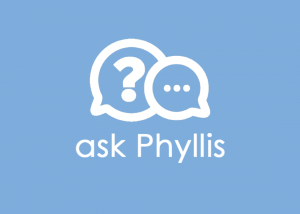
ask phyllis real estate question, real estate q and A
Ask Phyllis is a blog series of frequently asked real estate questions. Have a question about real estate? Email us here
Dear Phyllis,
We are in the midst of dissecting multiple offers. We received four offers on our home, two of which were at the same price. My agent pushed one over the others, which we accepted. Now that we are in escrow, this buyer is making demands for repairs and credits. In hindsight, I think perhaps our agent pushed this offer because the buyer’s agent works in the same brokerage. When you get more than one offer, how do you tell which is the best one?
Thank you, Gail
Dear Gail,
Each offer should contain:
1) Preapproval letter. I contact the lender and ask questions. In addition to questioning the lender on the buyer’s ability to obtain financing, I ask probing questions, such as Has this buyer been in escrow before? I want to learn as much as I can about the buyer, and their agent may be reluctant to tell me if their buyer has previously been in escrow and cancelled for some reason.
2) Evidence of down payment. The buyer’s lender will also check the buyer’s average balance to ensure the down payment is not borrowed.
3) A letter from the buyer’s agent. A good buyer’s agent will include a cover letter about their buyer. This should consist of how long they have been working together and how they know each other. I prefer to see a stronger relationship between agent and buyer—perhaps they are a past client, a referral from a co-worker, etc. A letter from the buyer is nice, but it’s often just fluff. The buyer certainly isn’t going to tell you anything negative.
When dissecting multiple offers, I look for:
1) The number of “contingencies” – more contingencies, offers more opportunity that the buyer may cancel and keep his initial earnest money deposit. However, an offer from a buyer contingent upon the sale of their home might indicate a very strong buyer. Suppose their buyer has already removed their investigative (inspection) contingency. In that case, your buyer will be motivated and need a home to move into –it’s not as if they are renting and can wait a few more months for the perfect home.
2) Down payment and cash reserves. Every home needs something, and after the buyer moves in, will they have the funds to make needed repairs or improvements? A buyer with cash reserves is an asset as they won’t be as frightened by the home inspector’s findings.
3) What type of financing? Conventional loans have fewer appraisal issues than FHA loans.
4) Who is the buyer’s agent? Are they a full-time Realtor? Have I had another escrow with them, and if so, how smooth of a transaction was it? Being in escrow with a part-time Realtor is often a problem, as they can be challenging to reach, and simple negotiations take longer. Terms are important. Perhaps one buyer has a larger down payment, and they have waived their appraisal contingency. Or one of the buyers is offering you longer possession in the home after closing.
Each situation is different, and I prefer to have a dialogue with my home sellers to explain what we are trying to accomplish. Sometimes, the seller’s agent will incorporate the best terms and issue a counteroffer, asking each buyer to accept those terms and respond with their highest and best price.
Best of luck to you on your negotiations.




